
We kindly inform you that, as long as the subject affiliation of our 300.000+ articles is in progress, you might get unsufficient or no results on your third level or second level search. In this case, please broaden your search criteria.

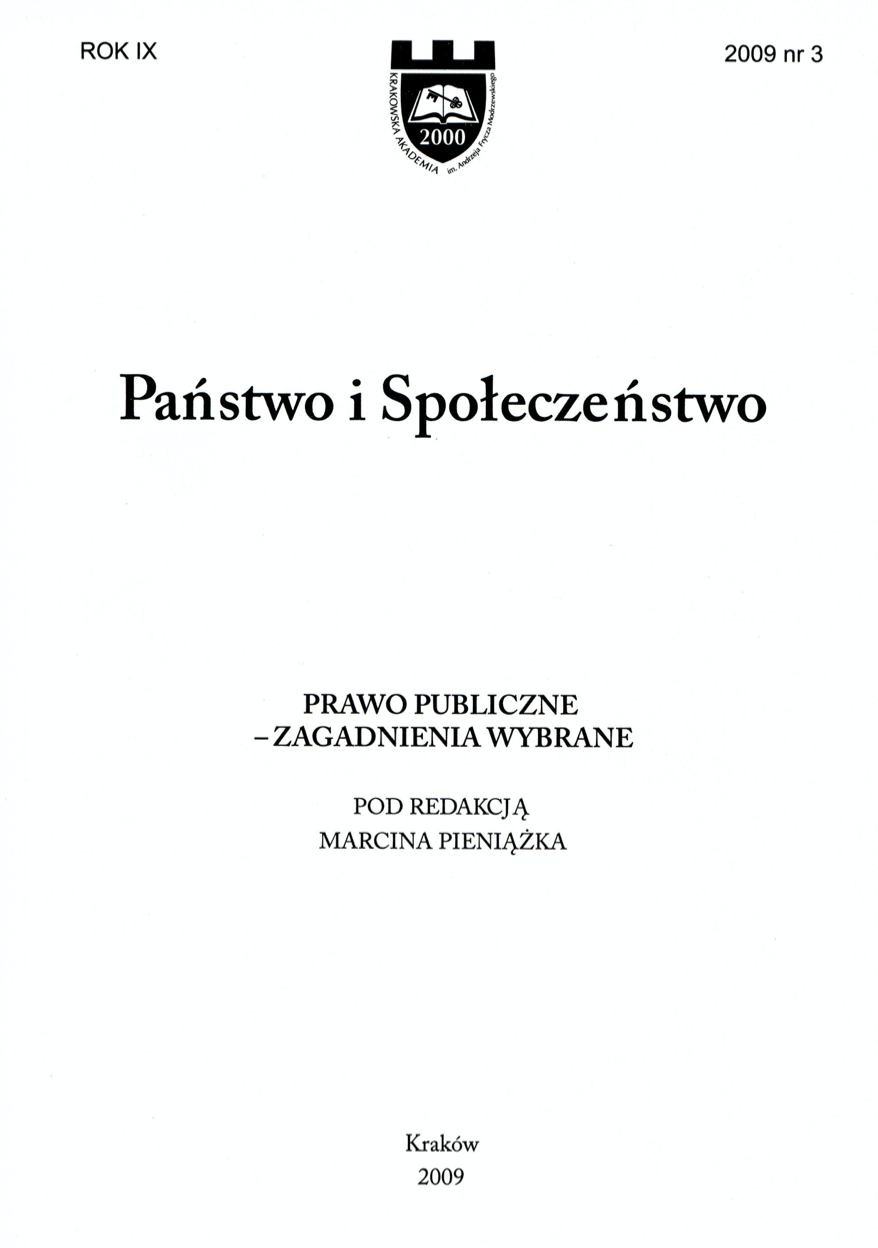
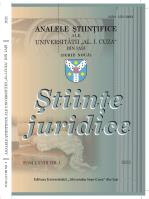
The legality of the criminal sanctions applied by the appellate court can be detected in the light of the cassation case provided by art. 438 par. (1) point 12 of the Code of Criminal Procedure. The analysis of the legality of the punishment is not, however, an exhaustive one, but is limited to violations of the law in case of errors that occur in connection with the establishment of the main punishment, complementary or accessory punishments, but also educational measures, or by applying an unforeseen sanction law, either by non-compliance with the legal limits or the sanctioning treatment imposed by the legislator. The present study aims to illustrate the formula of jurisprudential interpretation of the Supreme Court in the matter of the legality of the punishment in particular cases from the perspective of the cassation case provided by art. 438 point 12 of the Code of Criminal Procedure. We consider as methodological means used the following: literature review, analysis, interpretation.
More...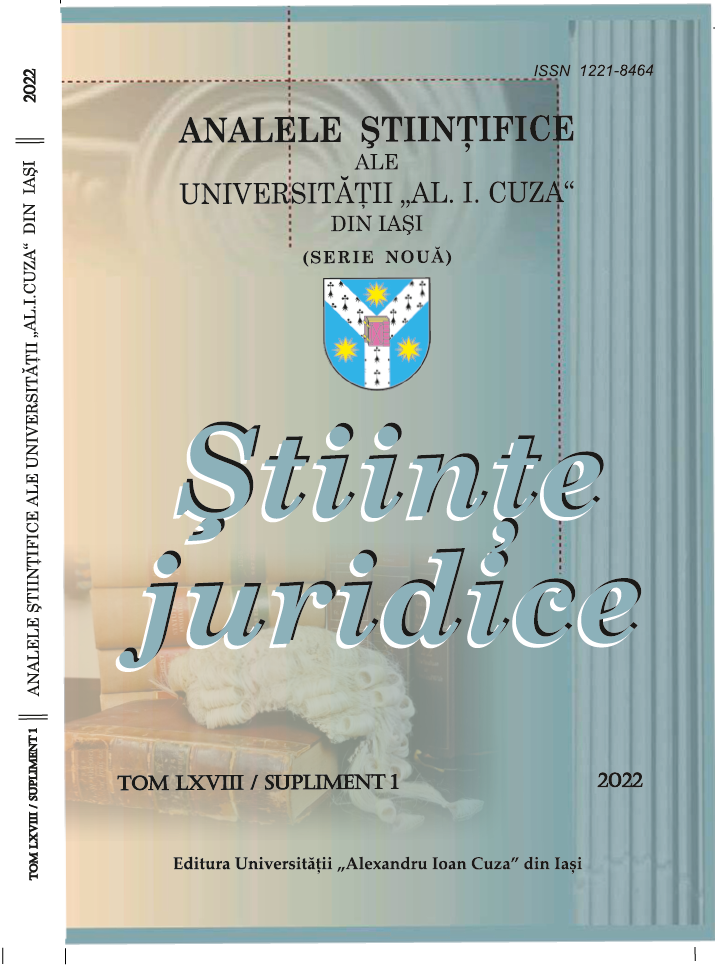
Listening to persons in the investigation of criminal activities is detached in terms of importance from the rest of the evidence-gathering activities. In the current pandemic context, obtaining the statements of the suspect or defendant is done in compliance with measures to prevent and combat the spread of the Sars-Cov 2 virus. The challenges of this approach concern the efficiency of the criminal investigation body, on the one hand, and on the other hand, the attitude of the suspect or defendant. Wearing a protective mask is mandatory, so the listening activity is difficult. This requires a greater amount of time and effort, or can be imposed with a higher frequency than usual. In fact, the imposition of the protective mask can lead to several moments of tension or even to the refusal to wear it. All these situations overlap with the procedure of listening to the suspect or defendant, already difficult, and must be managed by the one who carries out this evidentiary procedure.
More...
Respect for the right to privacy is an imperative in a democratic society, which is imposed on both individuals and state authorities. The rule is to respect the right to private life, and the infringment of this right is the exception. Such an exception is also the possibility to take biological samples from certain persons, in order to determine the genetic profile, provided by Law 76/2008 on the organization and functioning of the National Judicial Genetic Data System. Like any infringement of the exercise of a fundamental right or freedom, the possibility of taking biological samples must be strictly framed. This frame is achieved through the conditions deriving from art. 53 of the Romanian Constitution and art. 8 par. 2 of the European Convention on Human Rights. The most important conditions for such a restriction are necessity and proportionality. The task of verifying compliance with these two conditions is shared. On the one hand, the task lies with the legislator, who, when adopting or amending the law providing for the possibility of taking biological samples, will make an abstract assessment of the two conditions. On the other hand, the task belongs to the judicial bodies (judge or criminal investigation body) that order the taking of evidence. They shall carry out a concrete analysis in the light of the circumstances of the case and determine whether the measure is necessary and proportionate
More...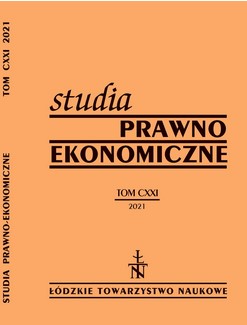
Wyrokiem będącym przedmiotem poniższej analizy Sąd Najwyższy oddalił skargę kasacyjną wniesioną od wyroku Sądu Apelacyjnego, który z kolei zmienił wyrok Sądu Okręgowego w całości uwzględniający powództwo o zasądzenie zwrotu świadczenia spełnionego przez powoda. Rozstrzygnięcie sprawy przez SN zasługuje na akceptację, choć stanowisko leżące u jego podstaw wymaga doprecyzowania.
More...![Wyrok Sądu Najwyższego Zjednoczonego Królestwa z 24 września 2019 r., [2019] UKSC 41](/api/image/getissuecoverimage?id=picture_2021_66076.jpg)
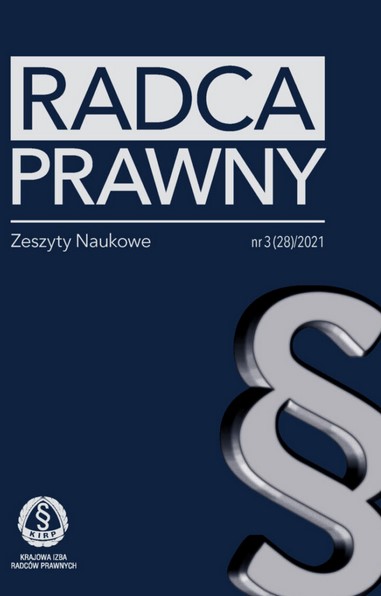
The resolution of the panel of seven judges of the Polish Supreme Court of July 2, 2021 (case file no. III CZP 38/20) is of utmost importance for legal practice. In it, the Court assumed that the landowner’s claim, under Article 231 § 2 of the Polish Civil Code, does not expire. The resolution of the Polish Supreme Court of September 30, 2021, case file no. III CZP 37/20, is of particular importance for legal practice. As indicated by the Supreme Court, the limitation period for a claim for compensation for recovery costs, based on Article 10(1) of the Act of March 8, 2013 on Counteracting Excessive Delays in Commercial Transactions (formerly known as the Act on Payment Terms in Commercial Transactions), is set out in Article 118 of the Polish Civil Code. However, according to the resolution of the Polish Supreme Court of July 6, 2021, case file no. III CZP 34/20 – in the event of bodily injury or health disorder, the court may award the aggrieved party with an appropriate sum as a pecuniary compensation for the harm suffered (Article 445 § 1 in conjunction with Article 4491 § 1 of the Polish Civil Code). Moreover, the Polish Supreme Court stated that the aggrieved party does not bear the burden of proving what caused the dangerous nature of the product.
More...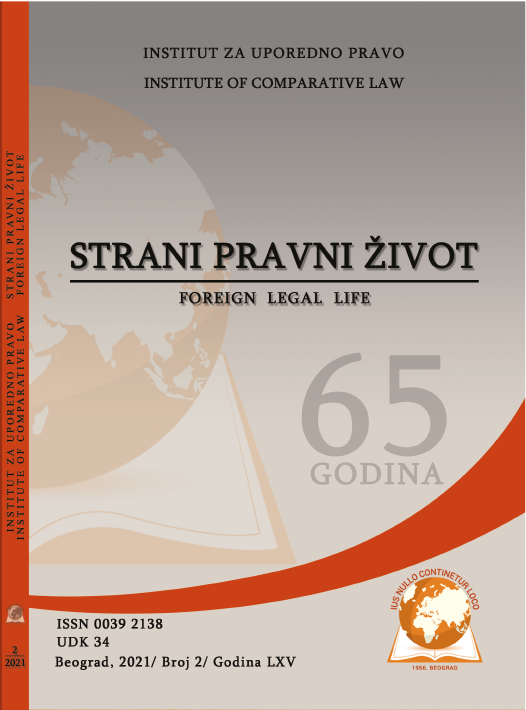
This article outlines the main changes that the system of Latvian courts faced after Latvia’s accession to the EU. In the legislative field Latvia has added in its procedural laws general provisions that incorporate EU law into Latvia’s legal system, as well as the possibility of national courts to apply preliminary rulings procedure. During Latvia’s EU membership, Latvian courts have adapted to their role in the application of the EU law, especially in the area of administrative law. Latvian courts have referred to the Court of Justice of the EU for preliminary rulings in over 100 cases, mostly from administrative courts. This corresponds with general tendencies in other new EU Member States. However, the fact that there are very few requests for preliminary rulings from courts that are not the courts of the last instance in Latvia, suggests that Latvian courts of first instances are somewhat unwilling to make use of the preliminary rulings procedure and do not see the benefits in its use.
More...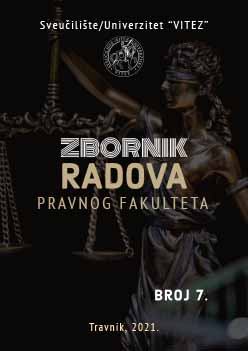
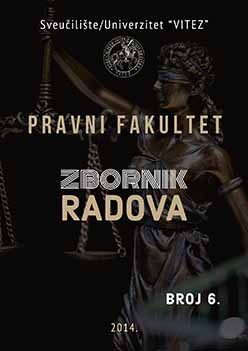
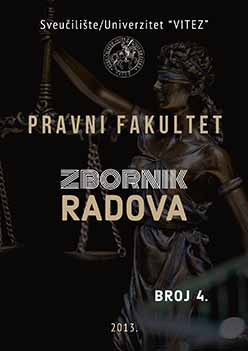
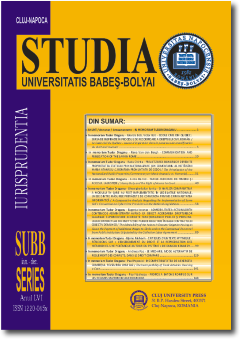
The text is a short commentary on Decision no. 43/2021 of the Romanian High Court of Cassation and Justice – Panel on clarifying certain legal matters, by which the supreme court ruled that the letter of guarantee issued by a credit institution is an enforceable title only if it is issued to guarantee a credit agreement.
More...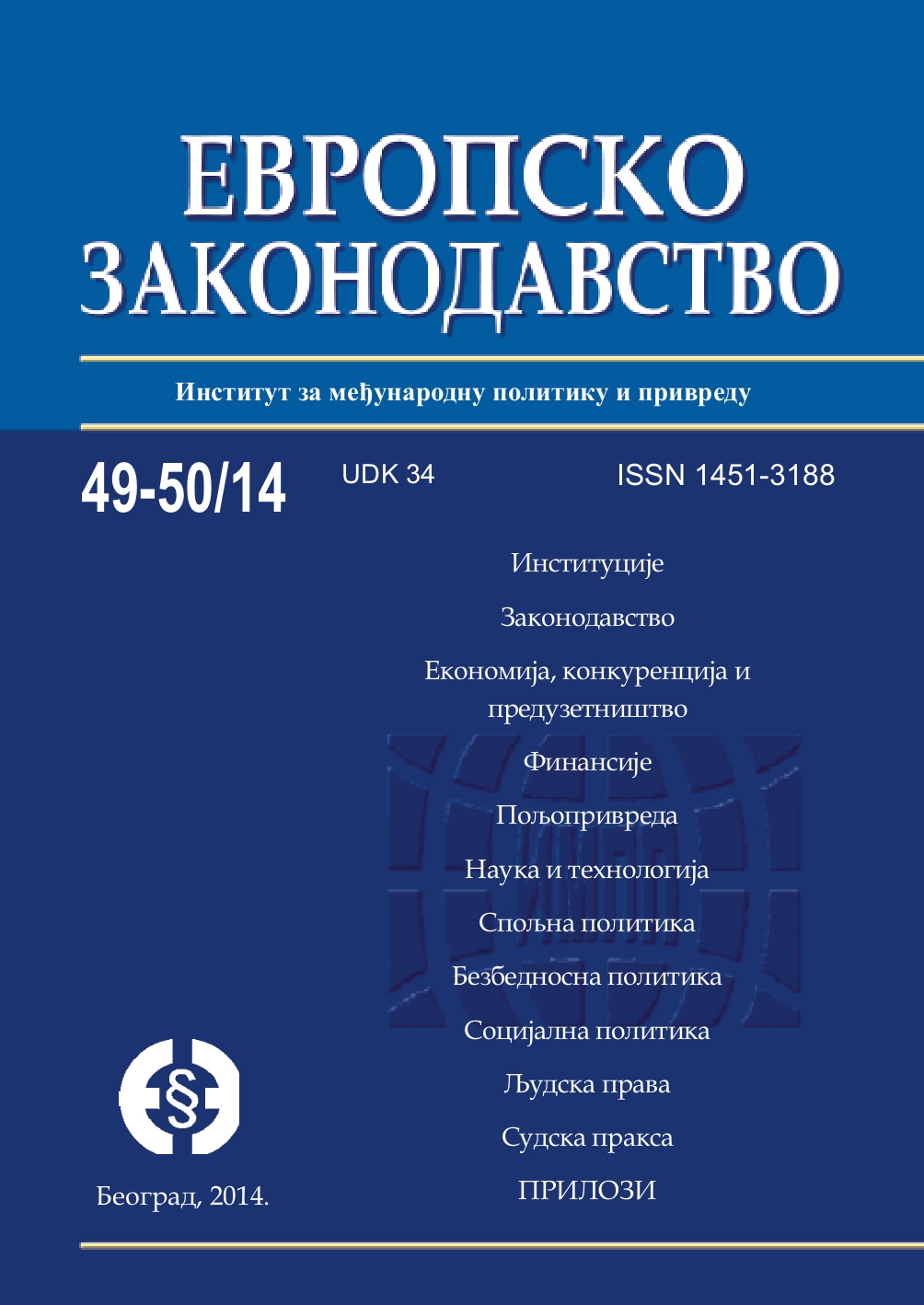
Arbitration settlement of disputes in international trade is a broadly applicable way of settling disputes in international trade and international business relations and it is based on the agreement of contracting parties. The paper treats in detail the procedure of adoption, annulment and implementation of an arbitration decision. Special emphasis is put on the analysis of the procedure of annulment, recognition and implementation of arbitration decisions in accordance with the internal sources of law. National legislations of the Republic of Serbia, England, France, Germany, Switzerland and Italy have been selected as representative ones.
More...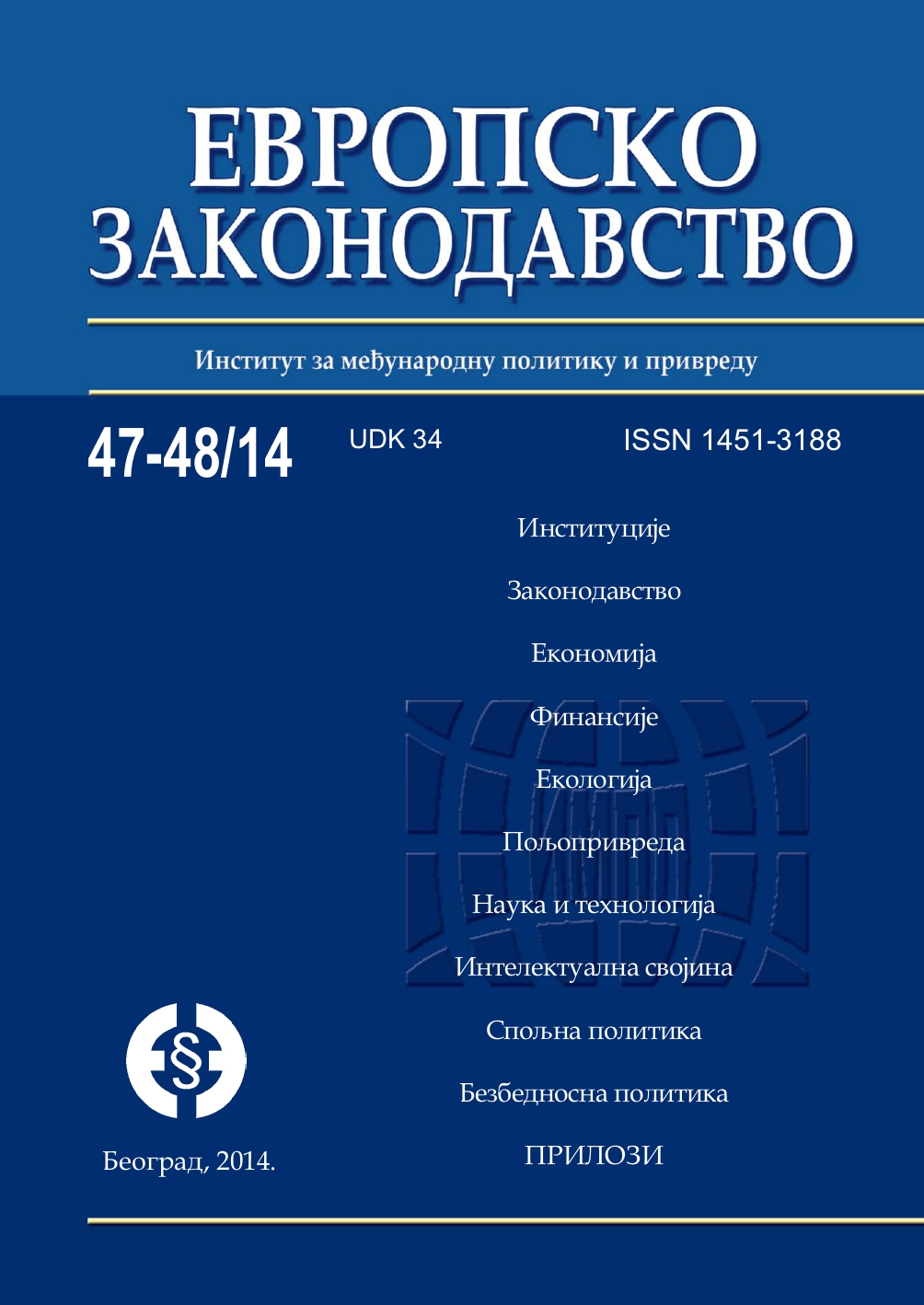
It is well known that the EU is primarily market-oriented; however, some EU regulations indirectly deal with ethical issues. Usually, ethical issues are left outside of EU law, but if not, they are included in a very general and vague manner, leaving freedom for detailed regulation within national laws. In the case of Brüstle against Greenpeace, the Court made an exception to this approach, in a manner which disregarded the aforementioned tradition of respecting differences among the Member States. The main subject in the case of Brüstle against Greenpeace was the interpretation of the Parliament and the Council’s Directive 98/44/CE on the legal protection of biotechnological inventions in the light of embryonic stem cells based inventions. Despite the lack of consensus concerning legal status of an embryo and definitions of the embryo which are accepted among the Member States, the Court was of the opinion that it was its role to decide on which embryo definition was acceptable in the EU in the context of the biotechnological inventions patentability. This article examines the Council’s Directive 98/44/CE primarily in the context of stem cell patenting, the Brüstle decision, the criticism of this decision, and in brief, relevant laws in Serbia.
More...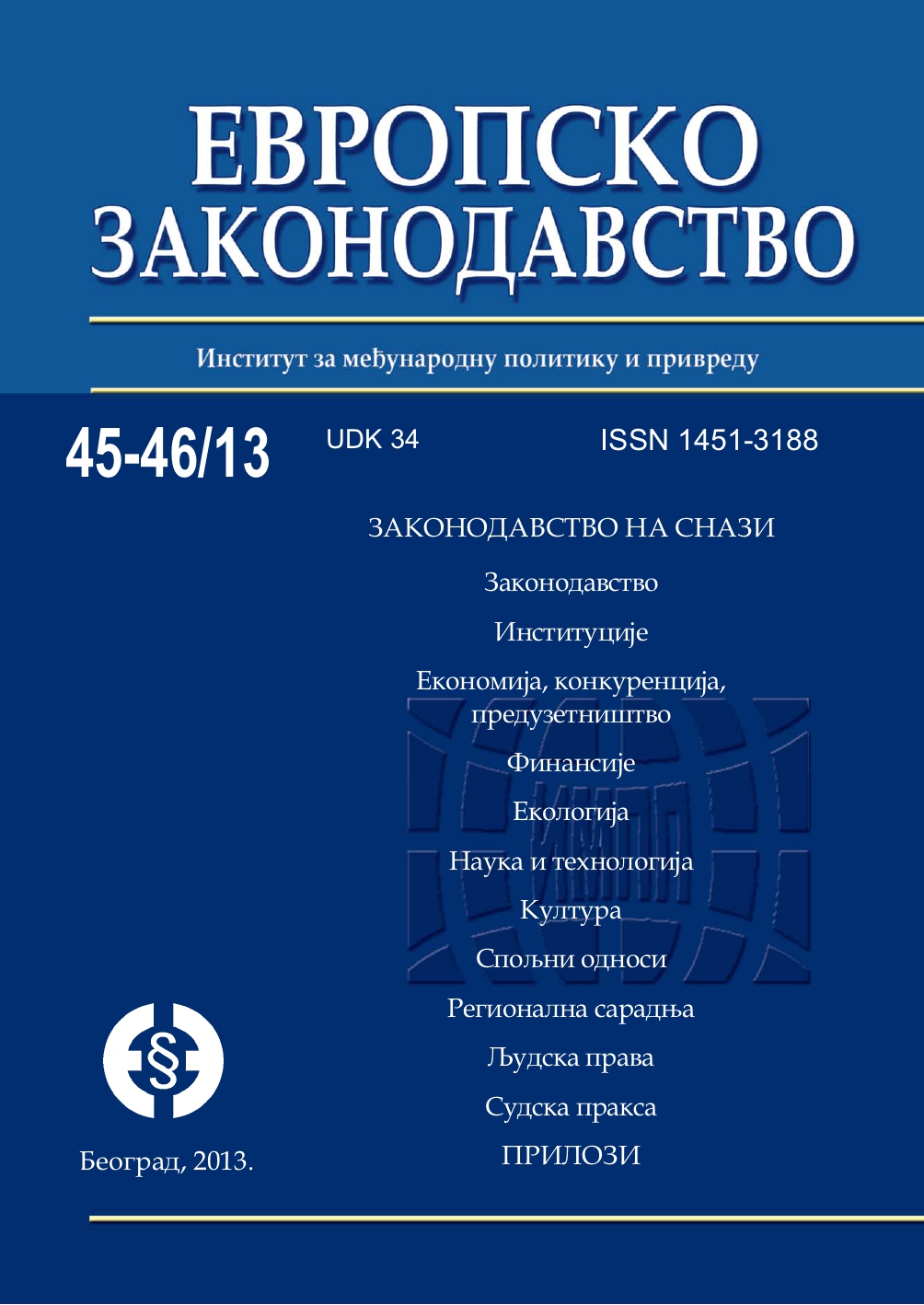
National courts and authorities of the contracting states of the European Patent Convention are competent to decide on the infringement and validity of European patents, but in practice, this gives rise to difficulties when a patent proprietor wishes to enforce a European patent, or when a third party seeks the revocation of a European patent in several countries. First of all, high costs, risk of diverging decisions and lack of legal certainty. In order to improve the enforcement of patents and to enhance legal certainty EU will be setting up a Unified Patent Court. The Unified Patent Court is a single patent court covering 25 countries, and is comprised from Court of First Instance, a Court of Appeal and a Registry. This Court will be for litigation relating to the infringement and validity of patents. Unified Patent Court will be a court common to the Contracting Member States and thus part of their judicial system. The Court is with exclusive competence in respect of European patents with unitary effect and European patents granted under the provisions of the European Patent Convention. Patent proprietors from Member States of the European Union participating in the enhanced cooperation can request unitary effect of their European patents so as to obtain unitary patent protection in the all Contracting parties of the Agreement. Member States which have decided not to participate in the enhanced cooperation in the area of the creation of unitary patent protection may participate in the Agreement on а Unified Patent Court in respect of European patents granted for their respective territory. Agreement is open to accession by any Member State of the European Union. Agreement on а Unified Patent Court should enter into force on 1 January 2014 or on the first day of the fourth month after the 13th deposit, provided that the Contracting Member States that will have deposited their instruments of ratification or accession include the three States in which the highest number of European patents was in force in the year preceding the year in which the signature of the Agreement takes place, or on the first day of the fourth month after the date of entry into force of the amendments to Regulation (EU) No 1215/2012 (1) concerning its relationship with this Agreement, whichever is the latest.
More...
Procedures before the European Court of Human Rights which concerning the protection of children’s rights, are many. In particular, in public attention were those in which decisions were made on the right of homosexuals to adopt children and the best interests of the children in these situations. They are particularly delicate, given the specificity of family relationships and interdependence of family norms of history, culture and traditions of the state. The question in these proceedings also is the right to medically assisted procreation of lesbian couples. The paper analyzes the judgment of the European Court of Human Rights in the case of Gas and Dubois v. France from March 2012, in the light of the recent changes of French legislation in this area. In May this year, entered into force the Law no. 404, which allows same-sex couples to get married and adopt children in France.
More...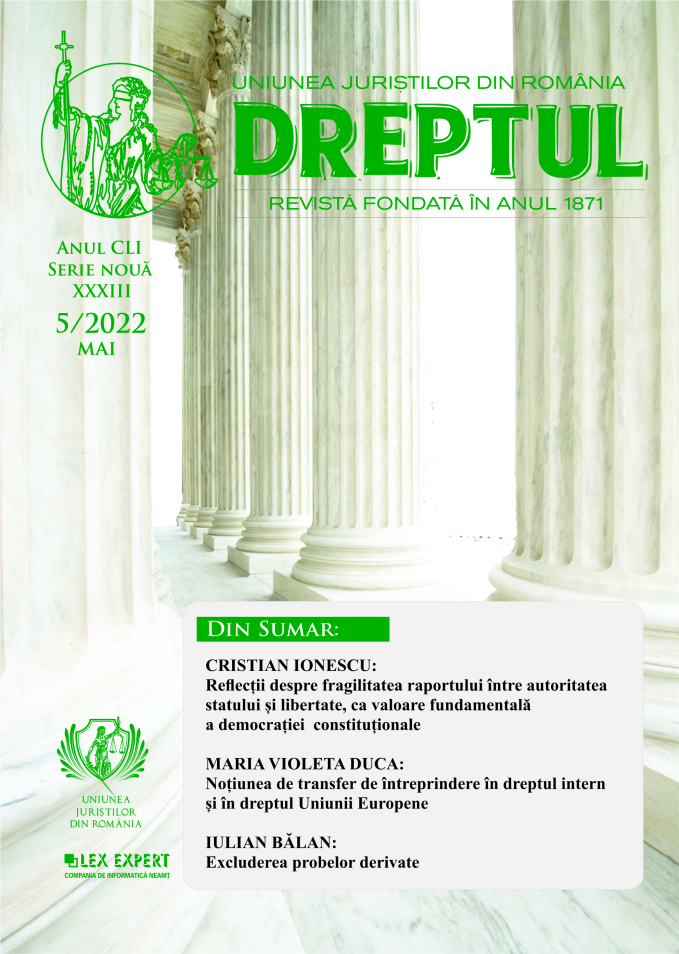
Action for claims. Opening of the insolvency procedure against the defendant during the examination of the case in first instance. Incidence of the provisions of Article 75 (1) of the Law No 85/2014. Appeal against the judgment pronounced in violation of this text of law. The section contains a selection of the most important decisions from the Romanian Courts. The decisions are selected and commented by authors. The emphasis of this section resides in the ability of each author to comment upon a relevant case-law and to comment upon the legal issue brought by the court. The decisions are summarized and grouped by law subjects. The decisions present the situation in question, the procedures, the arguments brought by the parties and the pronounced solutions. Each decision contains a short commentary relating to the legal issue analyzed by the court.
More...
The section contains a selection of the most important decisions from the Romanian Courts. The decisions are selected and commented by authors. The emphasis of this section resides in the ability of each author to comment upon a relevant case-law and to comment upon the legal issue brought by the court. The decisions are summarized and grouped by law subjects. The decisions present the situation in question, the procedures, the arguments brought by the parties and the pronounced solutions. Each decision contains a short commentary relating to the legal issue analyzed by the court.
More...
The section contains a selection of the most important decisions from the Romanian Courts. The decisions are selected and commented by authors. The emphasis of this section resides in the ability of each author to comment upon a relevant case-law and to comment upon the legal issue brought by the court. The decisions are summarized and grouped by law subjects. The decisions present the situation in question, the procedures, the arguments brought by the parties and the pronounced solutions. Each decision contains a short commentary relating to the legal issue analyzed by the court.
More...